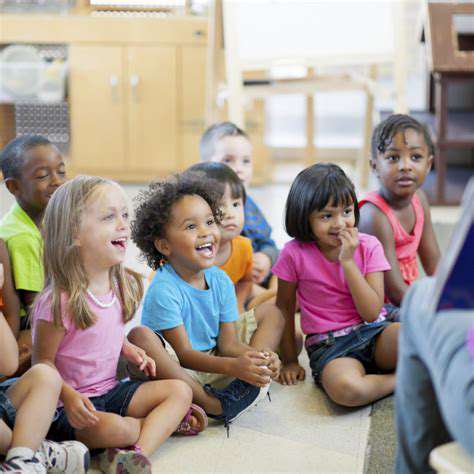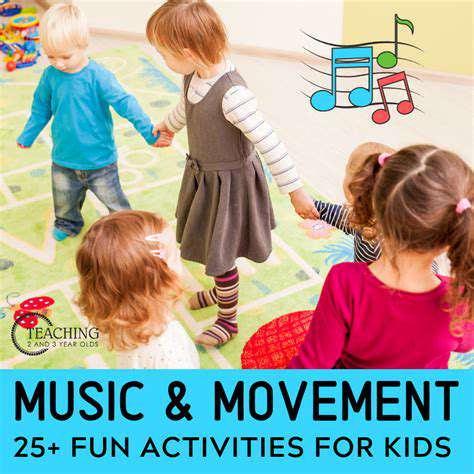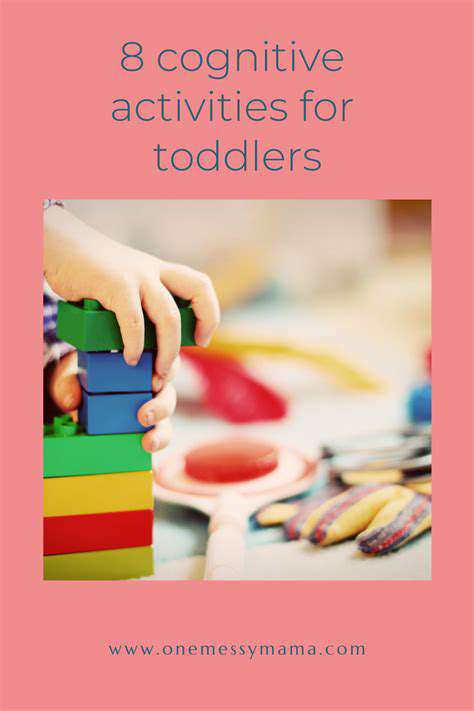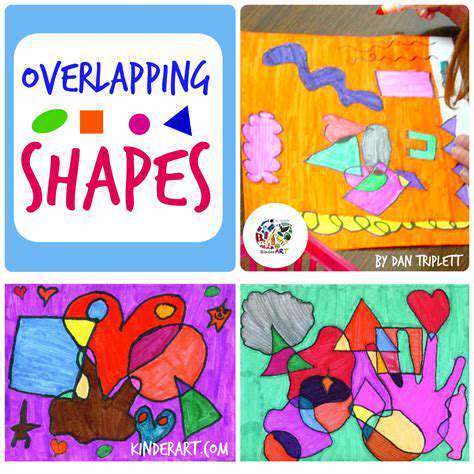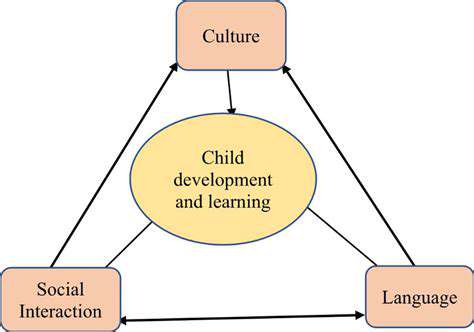Setting a Healthy Daily Routine for Early Childhood Success
Catalog
Consistent routines promote security and stability in early childhood development.
Structured schedules reduce anxiety, boosting children’s confidence and exploration willingness.
Routines support healthy sleep and eating patterns, influencing lifelong habits.
Clear expectations from routines minimize tantrums and improve behavior.
Incorporating rituals enhances learning and participatory engagement in activities.
Regular group activities foster social skills and peer interactions in children.
Flexible routines teach adaptability, essential for managing life's surprises.
Personalized routines increase child involvement and motivation for daily activities.
Transitional periods between activities ease overwhelming feelings for better adjustments.
Celebrating milestones reinforces the importance of established routines.
A consistent sleep schedule supports children's growth and learning capabilities.
A balanced diet ensures children receive essential nutrients for development.
Regular physical activity promotes physical fitness and cognitive function in children.
Mindfulness practices enhance emotional regulation and self-awareness in young children.
Parental involvement in routines fosters appreciation for healthy habits.
The Importance of Routine in Early Childhood
Benefits of Establishing a Consistent Routine
Establishing a consistent routine in early childhood can significantly enhance a child's sense of security and stability. Children thrive on predictability, and a structured daily schedule helps them understand what to expect throughout the day. When children know what comes next, they are more likely to feel less anxious and more confident in their surroundings, which can lead to a greater willingness to explore and learn.
Moreover, a stable routine supports various developmental milestones by allowing children to develop important life skills. For example, consistent mealtimes and bedtimes promote healthy sleep patterns and nutritional habits. These practices can lay the groundwork for healthier lifestyle choices as they grow older, contributing to their overall well-being and development.
Furthermore, routines can foster better behavior in children. When expectations are clear and consistent, children are less likely to exhibit frustration or tantrums. They learn what is required of them during different activities, whether it be playtime, learning, or family interactions, which cultivates respect for the daily structure and promotes cooperation at home and in other settings.
How Routines Enhance Learning and Development
Routines are crucial for facilitating learning experiences in early childhood. By incorporating consistent rituals into daily activities, caregivers can create an engaging environment that draws children in and encourages their active participation. For instance, having a dedicated storytime or art hour not only provides a creative outlet but also can develop literacy and fine motor skills over time.
In addition to cognitive development, routines help enhance social skills. Regularly scheduled group activities allow children to practice important social interactions, such as sharing, taking turns, and communicating with peers. This sets a solid foundation for their ability to navigate complex social landscapes in future academic and personal endeavors.
Moreover, routines can also nurture emotional growth. Children who routinely participate in activities that require emotional regulation, such as taking turns or managing disappointment, develop resilience. They begin to understand their own feelings and the feelings of others, which is a vital part of self-awareness and empathy development.
Creating Flexibility within Structure
While routines are essential, it is equally important to maintain a certain degree of flexibility within those structures. Children often encounter unexpected situations that require adaptability rather than strict adherence to the schedule. By building moments of flexibility into a routine, parents and caregivers can teach children how to navigate changes gracefully, preparing them for life's inevitable surprises.
For instance, allowing for extra playtime when friends are visiting or adjusting bedtime slightly for special occasions helps children understand that it's okay to deviate from the plan occasionally. This balance between structure and spontaneity fosters creativity and encourages children to become problem-solvers who learn to embrace change rather than resist it.
In this way, incorporating flexibility into established routines offers a valuable lesson: while consistency is important, adaptability is a crucial skill for social and emotional resilience. This balance will equip children with the skills to handle changing circumstances and to thrive in various environments as they grow.
Tips for Implementing a Successful Routine
Implementing a successful routine begins with understanding the unique needs and preferences of each child. Parents and caregivers should assess the individual temperament, energy levels, and interests of the child to create a personalized schedule that resonates with them. This involvement encourages ownership of their routine and enhances motivation to engage in daily activities.
Additionally, it's beneficial to include transitional periods between activities to allow children to adjust mentally and physically. Gradually moving from one task to another minimizes overwhelming feelings and fosters a smoother transition. For example, including a short relaxation period before bedtime can signal to the child that it's time to wind down, promoting better sleep quality.
Finally, consistency is key. Once a routine is established, it's essential to stick to it as much as possible, while still allowing for some flexibility. Celebrating small milestones and encouraging children to reflect on their routine can reinforce its value and efficacy. Positive reinforcement helps children understand the importance of routines, ultimately instilling habits that will carry them into adulthood.
Components of a Healthy Daily Routine

Establishing a Consistent Sleep Schedule
One of the foundational aspects of a healthy daily routine is a consistent sleep schedule. Children thrive on predictability, and establishing a regular bedtime helps them feel secure and rested. A good night's sleep is crucial for growth, development, and overall well-being.
Moreover, a well-structured sleep schedule enhances focus and learning capabilities throughout the day. It’s important for caregivers to create a calming pre-sleep ritual that signals to the child it’s time to wind down and prepare for rest.
Incorporating a Balanced Diet
Nourishing children with a balanced diet is essential for their physical and cognitive development. A variety of fruits, vegetables, whole grains, and proteins should be integrated into their meals to ensure they receive the necessary nutrients. This not only supports health but also fosters healthy eating habits as they grow.
It is also advantageous to involve children in meal planning and preparation, as this encourages them to take an active interest in their food choices. This involvement can lead to a greater appreciation of healthy eating and a willingness to try new foods.
Encouraging Regular Physical Activity
Physical activity is a vital component of a healthy daily routine for children. Not only does it help maintain physical fitness, but it also plays a significant role in enhancing mood and cognitive function. Encouraging children to engage in at least an hour of active play each day promotes their physical, social, and emotional development.
Activities can include anything from playing outside, riding bikes, to taking part in organized sports. Encouraging children to explore diverse physical activities will help them discover what they enjoy, fostering a lifelong love of movement.
Developing Mindfulness and Emotional Awareness
Mindfulness practices can significantly enhance a child's emotional well-being and self-regulation. Integrating short periods of mindfulness or meditation into the daily routine can help children develop skills to manage stress and anxiety. Teaching mindfulness skills encourages children to recognize and express their feelings, fostering emotional intelligence.
Engaging in storytelling, breathing exercises, or guided imagery can be effective methods to introduce these concepts. Additionally, creating a space for open discussions about feelings cultivates an environment of trust and safety, allowing children to navigate their emotions more effectively.
Tips for Implementing a Healthy Daily Routine
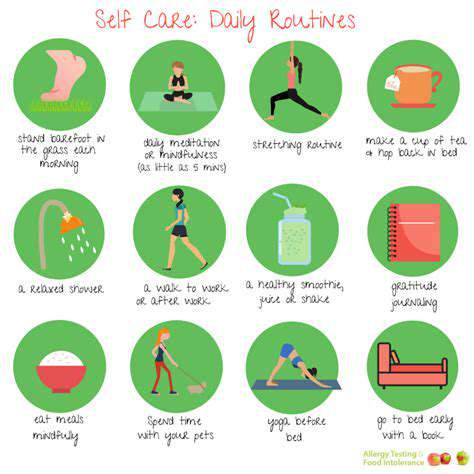
Establishing a Consistent Sleep Schedule
Creating a consistent sleep schedule is crucial for young children as it supports their growth, development, and overall well-being. Quality sleep enhances their ability to focus, learn, and process information effectively during the day. Parents should aim to create a calming bedtime routine that includes activities such as reading, singing, or gentle conversations to help signal to the child that it’s time to wind down.
Furthermore, setting specific bedtime and wake-up times can train a child's internal clock, leading to better sleep quality. This consistency will not only help children feel more rested but also improve mood and behavior throughout the day. Parents can use visual aids, like a bedtime chart, to make the routine engaging and easier to follow.
Encouraging a Balanced Diet
A balanced diet is a cornerstone of a healthy daily routine, especially in early childhood development. Children need a variety of nutrients to support their growing bodies and developing minds. Planning meals that include fruits, vegetables, whole grains, and lean proteins will provide the essential components for their health. It’s important for parents to model healthy eating habits and involve their children in meal preparation to foster an appreciation for nutritious foods.
Additionally, establishing regular meal and snack times can help children understand the importance of nutrition and healthy choices. Creating a positive mealtime atmosphere, free of distractions, can encourage children to enjoy and savor their food, leading to healthier eating habits.
Incorporating Regular Physical Activity
Regular physical activity is essential for maintaining both physical and mental health in young children. Engaging in play, sports, or outdoor activities helps improve coordination, build strength, and foster social skills. By incorporating at least 30 minutes of structured physical activity into their daily routine, parents can set the foundation for a lifetime of healthy habits. Creative play, such as dancing, simple games, or obstacle courses, can make exercise fun and engaging.
In addition to structured activities, encouraging free play allows children to explore their environment, develop motor skills, and express their creativity. Ensuring that children have access to safe outdoor spaces where they can move freely encourages a love for activity and helps combat sedentary behaviors. This balance is key to building a foundation of health that will last throughout their lives.


